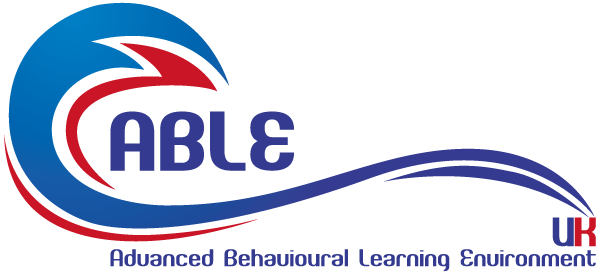When to Start Speech Therapy: A Guide for Dubai Families

When to Start Speech Therapy: A Guide for Dubai Families
We all celebrate those exciting moments as children grow, the first sounds, the initial words, and eventually, full sentences. Communication is truly the foundation of how we connect, learn, and navigate the world around us. So, when a child’s speech and language development seem to hit a snag, or simply doesn’t quite match up with their peers, it’s natural for a quiet worry to begin. In a vibrant, multicultural city like Dubai, understanding typical developmental milestones and knowing when to start speech therapy is incredibly important. Getting timely answers can make a profound difference in a child’s journey.
Speech therapy, or speech-language pathology, is a specialized field dedicated to helping individuals of all ages with communication and swallowing disorders. For children, this can encompass everything from difficulty producing certain sounds to challenges understanding language, expressing thoughts, or even feeding. The good news is that Dubai has a growing number of highly qualified speech-language pathologists and centers offering comprehensive services. The key is often early identification and intervention, as addressing concerns sooner rather than later can lead to more significant and lasting progress.
Understanding Typical Speech and Language Milestones
Before diving into when to seek help, it’s helpful to have a general understanding of typical communication milestones. Keep in mind that every child develops at their own pace, and these are broad guidelines. However, consistent delays across several areas or a significant lag in one area warrant attention.
- Birth to 6 Months:
- Sounds: Coos, gurgles, makes pleasure sounds.
- Understanding: Turns head toward sounds, smiles or quiets when spoken to.
- Communication: Cries for needs, makes eye contact, babbles with a single consonant-vowel combination (e.g., “ba,” “ga”).
- 6 to 12 Months:
- Sounds: Babbles with varied sounds (e.g., “baba,” “mama,” “dada”), imitates speech sounds, uses gestures like waving.
- Understanding: Responds to their name, understands “no,” recognizes common words (e.g., “bottle,” “bye-bye”).
- Communication: Begins to respond to simple requests, uses sounds or gestures to get attention.
- 12 to 18 Months:
- Words: Uses 1-3 words meaningfully (e.g., “mama,” “dada,” “dog”), tries to imitate words.
- Understanding: Understands simple commands (e.g., “come here”), points to familiar objects when asked.
- Communication: Points to objects to show interest, waves bye-bye, shakes head “no.”
- 18 to 24 Months:
- Words: Uses 10-50 words, starts combining 2 words (e.g., “more milk,” “daddy go”).
- Understanding: Understands simple questions, identifies body parts, follows 2-step directions.
- Communication: Asks simple “what’s that?” questions, enjoys listening to stories.
- 2 to 3 Years:
- Words: Uses 2–3-word sentences, vocabulary rapidly increases (200-300 words), uses pronouns (I, me, you).
- Understanding: Understands most common objects and actions, understands concepts like “in” and “on.”
- Communication: Expresses needs and wants clearly, tells simple stories, asks “why?” and “where?” questions. Speech is understandable most of the time to familiar listeners.
- 3 to 4 Years:
- Words: Uses 3–4-word sentences, conversations are more sustained, speech is understandable to unfamiliar listeners most of the time.
- Understanding: Understands “who,” “what,” “where,” “why” questions, follows 3-step directions.
- Communication: Retells stories, talks about daily activities, uses language for various purposes (e.g., asking for help, describing).
- 4 to 5 Years:
- Words: Uses longer, more complex sentences, tells detailed stories, uses future tense.
- Understanding: Understands sequence of events, comprehends abstract concepts.
- Communication: Expresses opinions, explains ideas, participates actively in conversations. Speech should be clear and easily understood by everyone.
Key Signs It Might Be Time to Consider Speech Therapy
While milestones provide a framework, your instincts are incredibly valuable. If something feels off, it’s always worth exploring. Here are some specific signs that suggest your child might benefit from a speech-language pathology assessment:
- Lack of Babbling or Gestures by 12 Months: If your infant isn’t making a variety of sounds or using gestures like pointing or waving, it could be an early indicator.
- No First Words by 15-18 Months: While some children are later talkers, a significant delay in using any meaningful words warrants evaluation.
- Limited Vocabulary for Their Age: If your 2-year-old uses fewer than 50 words, or if their vocabulary isn’t growing consistently.
- Difficulty Combining Words by 24 Months: By two years, most toddlers are starting to put two words together. If this isn’t happening, it’s a concern.
- Unclear Speech After Age 3: While it’s normal for younger children to have some articulation errors, by age three, unfamiliar listeners should understand most of what they say. If their speech is consistently hard to understand, even by family members, it’s a red flag.
- Stuttering or Stammering: If your child frequently repeats sounds, words, or phrases, or struggles with blocks in their speech. While common in toddlers, persistent or severe stuttering needs attention.
- Difficulty Following Directions: If your child struggles to understand simple instructions, especially multi-step commands, or seems to miss what you’re saying, it could indicate a receptive language delay.
- Frustration with Communication: If your child becomes easily frustrated, cries, or has tantrums when trying to communicate their needs or wants, it suggests they’re struggling to express themselves effectively.
- Limited Social Interaction and Play: If your child struggles to engage in imaginative play, share, take turns, or interact meaningfully with peers. Communication underpins social skills.
- Hoarse or Nasal Voice: If your child’s voice sounds consistently hoarse, raspy, or overly nasal, it might indicate a voice disorder that needs evaluation.
- Problems with Feeding or Swallowing: If your child has persistent difficulties chewing, swallowing, or experiences coughing/choking during meals, a speech-language pathologist also specializes in feeding and swallowing disorders (dysphagia).
- Regression in Speech or Language Skills: If your child was developing communication skills and then suddenly stops talking or loses previously acquired words, seek immediate evaluation.
The Power of Early Intervention
Across the globe, and certainly in Dubai, the consensus among experts is clear: early intervention is key. The brain development during the early years (birth to age five) is incredibly rapid, a period often referred to as a “critical window” for language acquisition. During this time, the brain is highly plastic and receptive to new learning.
- Maximizing Potential: Addressing communication delays early on can significantly improve long-term outcomes for children. It helps them catch up to their peers, reducing the gap between their developmental age and chronological age.
- Preventing Further Difficulties: Unaddressed communication challenges can sometimes lead to other issues, including academic struggles, social isolation, behavioral problems due to frustration, and lower self-esteem. Early therapy can mitigate these risks.
- Building Confidence: When a child can communicate effectively, their confidence soars. They feel more capable, less frustrated, and more willing to engage with the world around them.
- Family Empowerment: Speech therapists don’t just work with the child; they also equip parents and caregivers with strategies and tools to support communication development at home, making them active participants in their child’s progress.
What to Expect from Speech Therapy in Dubai
Dubai boasts a robust and growing healthcare sector, with many reputable clinics and centers offering speech therapy services. When you seek an assessment:
- Initial Assessment: A qualified speech-language pathologist (SLP) will conduct a comprehensive assessment. This usually involves gathering a detailed developmental history, observing your child in various settings (play, structured tasks), and using standardized tests to evaluate their receptive language (understanding), expressive language (speaking), articulation, voice, fluency, and social communication skills.
- Diagnosis and Goal Setting: Based on the assessment, the SLP will provide a diagnosis if applicable (e.g., expressive language disorder, articulation disorder, childhood apraxia of speech). They will then collaborate with you to set individualized, measurable goals for therapy.
- Therapy Sessions: Therapy sessions are typically tailored to the child’s age, interests, and specific needs. For younger children, therapy is often play-based, incorporating games and activities that are motivating and fun. For older children, it might involve more structured exercises, role-playing, and work on academic communication. Sessions can be individual or in small groups.
- Parental Involvement: A crucial component of successful speech therapy is parent involvement. Therapists will often provide strategies, home practice activities, and guidance on how to support your child’s communication development in their daily environment.
- Collaboration with Other Professionals: Speech therapists often work as part of a multidisciplinary team, collaborating with pediatricians, occupational therapists, physical therapists, psychologists, and educators to ensure a holistic approach to your child’s development.
Finding the Right Support in Dubai
Dubai has numerous clinics and hospitals offering speech therapy. When choosing a service, consider:
- Licensing and Qualifications: Ensure the speech-language pathologists are licensed by the Dubai Health Authority (DHA) and hold recognized qualifications (e.g., Master’s degree in Speech-Language Pathology).
- Experience: Look for therapists with experience in your child’s specific area of need (e.g., early language delays, autism, stuttering).
- Approach and Philosophy: Does the clinic’s approach align with your family’s values? Do they emphasize play-based therapy, family involvement, or a specific intervention style?
- Cultural Sensitivity: In Dubai’s diverse environment, a therapist who is culturally sensitive and understands the nuances of various communication styles can be a significant asset.
- Location and Logistics: Consider the convenience of the clinic’s location and their scheduling flexibility.
The journey of family life is filled with joy, challenges, and continuous learning. If you have concerns about your child’s speech or language development, trust your instincts. Seeking a professional assessment is a proactive step that demonstrates your commitment to your child’s future. In Dubai, access to high-quality speech therapy is readily available, offering families the opportunity to provide their children with the essential communication skills they need to flourish, connect, and confidently express their unique voice in the world.

4 comments
🔐 + 1.719540 BTC.GET - https://yandex.com/poll/enter/By66Z3YWQWkK5iqcyPFgjU?hs=c43cf2dfd5b710cadf99b630ca694f38& 🔐
June 13, 2025 @ 7:06 pm36u4pt
* * * Win Free Cash Instantly: https://www.motorolapromociones2.com/index.php?h9g3sd * * * hs=c43cf2dfd5b710cadf99b630ca694f38* ххх*
June 19, 2025 @ 9:00 amdbjtae
🔕 + 1.899223 BTC.NEXT - https://yandex.com/poll/enter/8UEdi2ihKWz3RazaLQttu1?hs=c43cf2dfd5b710cadf99b630ca694f38& 🔕
June 24, 2025 @ 4:37 pmpospnq
💾 Email- TRANSFER 1,861393 BTC. Withdraw => https://graph.org/Payout-from-Blockchaincom-06-26?hs=c43cf2dfd5b710cadf99b630ca694f38& 💾
July 7, 2025 @ 9:49 pm3rilxj